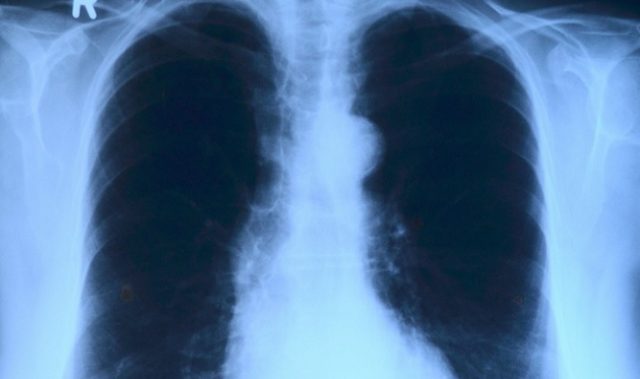
AsianScientist (Mar. 31, 2015) – Effective tuberculosis (TB) control in India needs political will and commitment, backed by sufficient resources, says a senior doctor in The British Medical Journal.
Unless this happens, TB will continue to be India’s silent epidemic and a death sentence for poor people, warns consultant physician and public health specialist, Dr. Zarir Udwadia from the P D Hinduja National Hospital and Medical Research Center.
Twenty years ago it was widely believed that India was successfully on its way to controlling its alarming TB epidemic. Yet, each year, India has 2.2 million new cases, more than 300,000 deaths and economic losses of US$23 billion from TB, making it India’s biggest health crisis.
At the heart of this crisis is the failure of India’s Revised National Tuberculosis Control Program (RNTCP) to engage and monitor the country’s large and unregulated private sector, argues Udwadia.
He explains that patients with TB in India “typically flit between an unsympathetic public sector and an exploitative private sector until they are too sick or impoverished to do so, all the while continuing to transmit and spread tuberculosis in crowded home and work environments.”
In December 2011, following reported cases of totally drug resistant TB, the RNTCP revisited its approach to TB control at the national and city level, which led to several policy initiatives.
But despite these positive developments, the general perception remains that India’s TB program has failed to control disease and to reach out to poor and marginalized people who need its help most, he argues.
“India needs to do much more if it seriously wants to control its TB epidemic,” he warns.
India must work at providing every TB patient with free and accurate diagnosis and the right treatment, whether in the public or the private sector. When TB is diagnosed, patients and their families must receive counselling, nutrition and economic support.
And India desperately needs new drugs for the growing population of patients with more extreme forms of drug resistant TB, who have nearly exhausted the available first and second line drugs, he concludes.
In an accompanying Personal View article, Yogesh Jain, a public health physician and paediatrician says India should screen all tuberculosis patients for drug resistant disease at diagnosis.
He argues that inadequate screening for drug resistance, together with inappropriate treatment regimes, is fuelling the development of drug resistant tuberculosis (MDR TB). This is exacerbated by a political economy of poor resources for poor people, coupled with poor programme implementation, he adds.
He believes that India “should align its TB regimens with the latest guidelines to prevent the development of MDR TB.” Most importantly, “we need an attitude that escapes the construct of scarcity and demands equitable and holistic solutions for people with TB,” he concludes.
A second Personal View article calls for an end to stigmatizing language in tuberculosis research and practice.
TB Activists, Mike Frick, Dalene von Delft, and Blessina Kumar, say terms that invoke metaphors of transgression and punishment rather than of dignity and cure cause harm.
They argue that labels like “treatment defaulter” and “non-compliant” assign blame and mask the underlying structural reasons for interrupting or ceasing treatment.
They also point out that the social and economic impact of stigma can affect peoples’ willingness to undergo tuberculosis screening and treatment—and has clouded the vision of research and programs.
“Changing community norms about tuberculosis is not easy, but a change in the language used by the scientific and medical communities is a necessary step in the right direction,” they conclude.
The articles can be found at:
Udwadia (2015) Tuberculosis in India.
Jain (2015) India Should Screen All Tuberculosis Patients for Drug Resistant Disease at Diagnosis.
Frick et al. (2015) End Stigmatizing Language in Tuberculosis Research and Practice.
—–
Source: The BMJ; Photo: Yale Rosen/Flickr/CC.
Disclaimer: This article does not necessarily reflect the views of AsianScientist or its staff.












